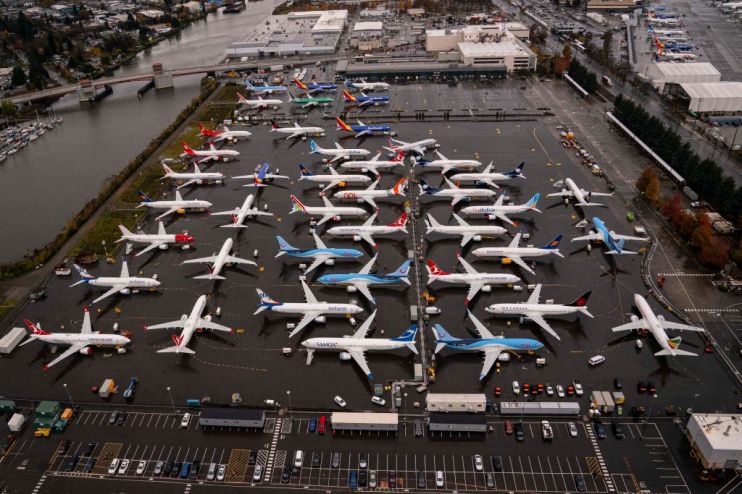EU clears 737 Max for takeoff as Boeing plummets to $13bn loss

The European aviation regulator has today deemed that Boeing’s 737 Max model is fit to return to service after being grounded for nearly two years.
The decision by the European Union Aviation Safety Agency (EASA) came as the aerospace giant posted a mammoth $12.8bn (£9.3bn) operating loss.
The twin crises of the grounding and the coronavirus pandemic have battered the engineering firm, whose previous record loss was $2bn.
Boeing also delayed its new model, the 777X, for the third time. It will now enter service in late 2023.
Chief executive Dave Calhoun said: “2020 was a year of profound societal and global disruption which significantly constrained our industry.
“The deep impact of the pandemic on commercial air travel, coupled with the 737 MAX grounding, challenged our results.”
Shares in the firm fell 4.5 per cent in pre-trading on the back of the announcement.
EU has ‘every confidence’ 737 Max is safe
The dire performance as offset slightly by the news that the EU had become the second authority to clear the best-selling 737 Max to fly again.
EASA executive director Patrick Ky said: “We have every confidence that the aircraft is safe, which is the precondition for giving our approval.
“But we will continue to monitor 737 MAX operations closely as the aircraft resumes service,”
Before the Open: Get the jump on the markets with our early morning newsletter
Since March 2019, the 737 Max has been suspended from flying after two fatal crashes killed a combined 346 people.
In November the Federal Aviation Agency (FAA) said that the aircraft could return to service after the 20-month suspension.
The body has demanded new pilot training and software upgrades to deal with a stall-prevention system called MCAS, which was found to be at fault in both crashes.
The crashes, and subsequent grounding, triggered the worst crisis in Boeing’s history, which was then compounded by the coronavirus pandemic.
In total, new deliveries totalled just 157 last year, a 43-year low and less than 20 per cent of Boeing’s record of 806, which was set in 2018.
As a result of the crisis, the manufacturer has been forced to cut 7,000 jobs.